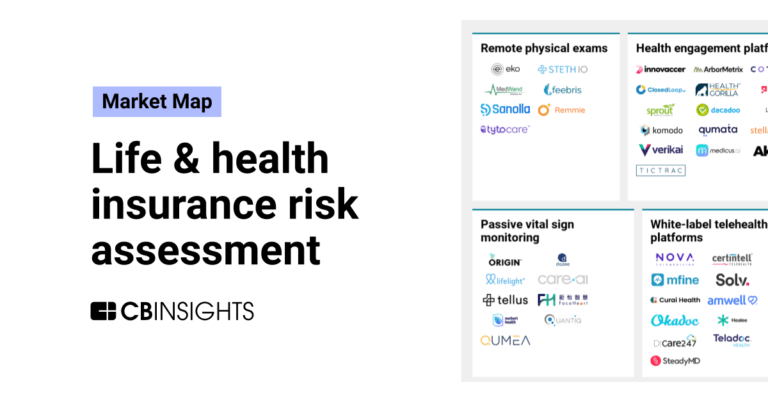
Whoop
Founded Year
2012Stage
Angel | AliveTotal Raised
$404.38MMosaic Score The Mosaic Score is an algorithm that measures the overall financial health and market potential of private companies.
+4 points in the past 30 days
About Whoop
Whoop focuses on wearable technology designed to enhance human performance within the health and fitness industry. The company offers a wearable device that tracks sleep, strain, recovery, and health metrics to provide personalized insights and recommendations. Whoop primarily serves individuals seeking to improve their personal health and athletic performance. Whoop was formerly known as Bobo Analytics. It was founded in 2012 and is based in Boston, Massachusetts.
Loading...
ESPs containing Whoop
The ESP matrix leverages data and analyst insight to identify and rank leading companies in a given technology landscape.
The consumer wearables & biosensors market offers solutions for individuals to monitor various aspects of their health. These devices can track a wide range of metrics such as heart rate, sleep quality, activity levels, and even blood glucose levels, providing users with insights into their health. Additionally they can be used to track and manage chronic conditions like diabetes, heart disease, a…
Whoop named as Outperformer among 15 other companies, including Google, Abbott, and Samsung Electronics.
Loading...
Research containing Whoop
Get data-driven expert analysis from the CB Insights Intelligence Unit.
CB Insights Intelligence Analysts have mentioned Whoop in 3 CB Insights research briefs, most recently on Aug 21, 2024.
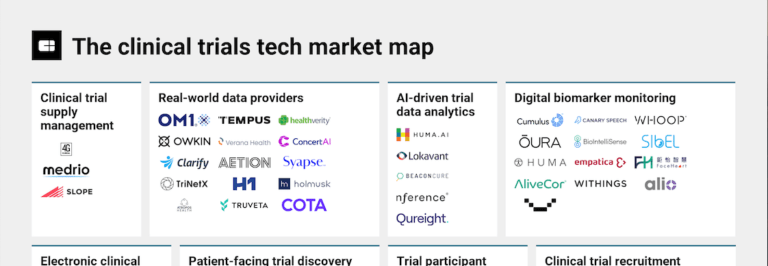
Aug 21, 2024
The clinical trials tech market mapExpert Collections containing Whoop
Expert Collections are analyst-curated lists that highlight the companies you need to know in the most important technology spaces.
Whoop is included in 6 Expert Collections, including Direct-To-Consumer Brands (Non-Food).
Direct-To-Consumer Brands (Non-Food)
1,192 items
Startups selling their own branded products directly to consumers through owned e-commerce channels, rather than relying on department stores or big online marketplaces.
Unicorns- Billion Dollar Startups
1,244 items
Smart Home & Consumer Electronics
1,234 items
This Collection includes companies developing smart home devices, wearables, home electronics, and other consumer electronics.
Digital Health
11,072 items
The digital health collection includes vendors developing software, platforms, sensor & robotic hardware, health data infrastructure, and tech-enabled services in healthcare. The list excludes pureplay pharma/biopharma, sequencing instruments, gene editing, and assistive tech.
Precision Medicine Tech Market Map
160 items
This CB Insights Tech Market Map highlights 160 precision medicine companies that are addressing 9 distinct technology priorities that pharmaceutical companies and healthcare providers face.
Tech IPO Pipeline
257 items
The tech companies we think could hit the public markets next, according to CB Insights data.
Whoop Patents
Whoop has filed 70 patents.
The 3 most popular patent topics include:
- physical exercise
- activity trackers
- cardiac arrhythmia
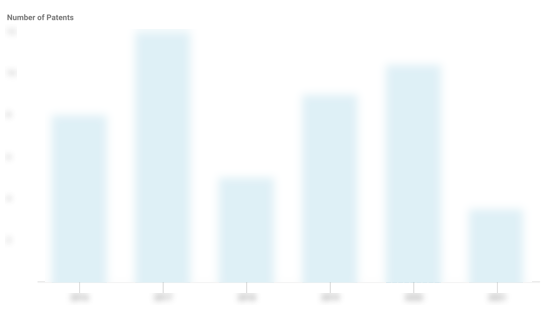
Application Date | Grant Date | Title | Related Topics | Status |
|---|---|---|---|---|
1/24/2024 | 7/30/2024 | Grant |
Application Date | 1/24/2024 |
|---|---|
Grant Date | 7/30/2024 |
Title | |
Related Topics | |
Status | Grant |
Latest Whoop News
Sep 3, 2024
Gone are the days of nutritionists and personal trainers. Now, all you need is a wearable wellness device. While the likes of Oura and Whoop have been using machine learning since their inception to track and compile user data, device makers are now tapping into the technology to offer personalized recommendations and coaching based on insights over time. It’s early days for this coaching technology, but experts predict that these chat features will become the norm for wearable devices. Oura and Whoop both offer a chat feature where users can ask an AI-powered chat coach any questions, like “What workout should I do today?” “When should I go to sleep?” “What time should I wake up?” and more. Based on the user’s insights, also compiled and assessed via machine learning, the chatbot will provide advice. Related Articles “It’s really a doctor on your wrist,” said Andrew Csicsila, partner and managing director at AlixPartners. According to experts, this has been the missing component for wearables, as users often question “Now what?” after being given mass amounts of data daily. “It’s difficult to take all the data that your body can create and turn it into insights that are useful enough to drive behavioral change,” said David Wagner, founder and managing partner of Wildwood Ventures, a venture studio and investor focused on outdoor and wellness companies. “That is the secret.” Wearable brand Whoop was one of the earliest players in the space when it launched Whoop Coach, powered by OpenAI, last September. Since launch, the company has seen consumers use it for both early onboarding reasons — learning what certain metrics are or where to find some features — and daily questions around fitness, nutrition, recovery and specific use cases, like avoiding jet lag. Additionally, the feature answered that “Now what?” question Whoop users had. Whoop launched its Whoop Coach feature last September. Courtesy of Whoop “There are some people who get intimidated by wearables because there’s so much data,” said Emily Capodilupo, senior vice president of research, algorithms and data at Whoop. “We got the feedback prior to Coach: ‘I just want someone to tell me what to do. '” Concurrently, Oura, which has now sold more than 2.5 million rings and has tripled its member base in the last three years, rolled out Oura Advisor via its in-app testing platform Oura Labs this July. The coaching capability is still in the testing phase but has received promising feedback, per the team. “Up to now, it’s really been a one-way channel where we can deliver all these insights to you,” said Jason Russell, vice president of consumer software product at Oura, explaining this new feature opens a two-way dialogue with the user. “It uses AI for personalized insights, for recommendations, also just encouragement, and learns what are your health goals, and encourages you in ways that help you meet those health goals.” Oura Advisor Courtesy of Oura While this new feature personalizes each user’s experience, Oura has taken it a step further, allowing each customer to customize how intense the AI coach is when asking questions and giving advice. “People respond differently to different coaching styles,” Russell said, noting that people can request a harsh approach or a gentler, compassionate one. As these AI features offer more personalized experiences, they also make the products and education more accessible, as the chat features can often speak more languages than the brand is able to communicate in via its website and marketing. In addition, they give the brands an idea of what features to fix or launch next. “If they’re not using this data to learn, to build, think through the next product, the innovation, then they’re missing out,” said Csicsila. Evie, a tracking ring developed specifically for women, is also tapping into AI. While it hasn’t employed chatbot coaching where users can ask questions, it does share targeted insights. According to the company, Evie will be relaunching this month with more specific AI-generated advice. “The value of AI is its ability to find multiple patterns quickly and offer suggestions to keep positive momentum going and eliminate the behaviors that aren’t serving them,” said Tyla Bucher, chief marketing officer of Movano Health, the maker of the Evie ring. Samsung has also recently introduced a beta version of Galaxy AI, which includes personalized coaching and chat capabilities, to some watch users. Google, which uses AI for tracking and daily insights, does not currently have a singular AI coach on its wearables, though many features are powered by the tech. While Apple has used AI for its watch features, some rumors have been swirling online about possible wellness coaching capabilities in the future, though the company did not comment on any new features. The company has also filed a patent for a wellness ring. That being said, sources say other wearable brands should be wary of Apple in terms of whether it can easily replicate their model. “With a lot of the wearable companies, they’re asking the question, ‘Is Apple going to do something to take me out?,’ said Csicsila. “It’s a threat.” While experts agree this technology is the future of the category, there are some possible issues. Although users want to know what to do with their insights, will they be motivated enough to ask the right questions? With this in mind, Whoop has created the capability to also suggest questions. “You certainly can ask it whatever you want to ask it, and it’s ready for anything, but it does give you a couple of recommended prompts if you don’t know where to start,” said Capodilupo, pointing to questions like “What workout should I do today?” While this technology is promising and brands across the category seem eager to roll it out, some suggest companies and users tread lightly. “Consumers associate coaching with a degree of expertise and may not know or understand the role of AI in the coaching relationship,” said David Mallen, an advertising and media attorney and co-chair of the Advertising Disputes practice group at Loeb & Loeb. Therefore, companies are hardwiring their algorithms to not answer certain questions or give advice on specific medical subjects. While there are questions around safety and regulation, experts agree that AI has been and will continue to be the key driver of the wearable category. Csicsila said: “If they are not [using] AI machine learning, they are so far behind the curve.” Tags
Whoop Frequently Asked Questions (FAQ)
When was Whoop founded?
Whoop was founded in 2012.
Where is Whoop's headquarters?
Whoop's headquarters is located at One Kenmore Square, Boston.
What is Whoop's latest funding round?
Whoop's latest funding round is Angel.
How much did Whoop raise?
Whoop raised a total of $404.38M.
Who are the investors of Whoop?
Investors of Whoop include Cristiano Ronaldo, NextView Ventures, Accomplice, Thursday Ventures, SoftBank and 35 more.
Who are Whoop's competitors?
Competitors of Whoop include NYX, STAT Health, Oura, Figur8, Dozee and 7 more.
Loading...
Compare Whoop to Competitors
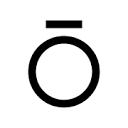
Oura is a health technology company focused on personal health and well-being through sleep and activity tracking. The company offers the Oura Ring, a wearable device that monitors various physiological signals to provide insights into sleep patterns and daily activity levels. Oura primarily serves the personal health and wellness sector, with a focus on individuals seeking to enhance their lifestyle and well-being. It was founded in 2013 and is based in Oulu, Finland.

Withings is a company that focuses on connected health technology in the healthcare industry. The company offers a range of products including smart scales, hybrid watches, blood pressure monitors, and sleep analyzers, all designed to provide medical-grade measurements at home. These products primarily cater to the healthcare and wellness sectors. It was founded in 2008 and is based in Issy-les-Moulineaux, France.
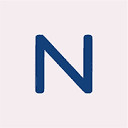
NYX serves as a neuro-technology company focused on sleep and wellness. The company offers a wearable headset designed for sleep quality using adaptive and science-backed methods. NYX primarily serves the health and wellness technology sector. It was founded in 2016 and is based in Haifa, Israel.

Empatica is an affective computing company that specializes in medical quality sensing and human data analytics within the health monitoring and research sector. The company offers FDA-cleared wearable devices and a health monitoring platform that provides accurate, continuous health insights for researchers and clinicians, collected in real-world settings. Empatica's technology is utilized by pharmaceutical companies to monitor treatment impacts and develop novel digital biomarkers. Empatica was formerly known as Physiio International,Inc.. It was founded in 2011 and is based in Cambridge, Massachusetts.
Shleep is a company focused on promoting better sleep habits, operating within the health and wellness industry. The company offers services such as workshops, assessments, and coaching, all aimed at helping individuals and organizations improve their sleep patterns and overall well-being. Shleep primarily serves the corporate sector, providing sleep education and strategies to enhance workforce productivity and happiness. It was founded in 2016 and is based in Amsterdam, Netherlands.
Palta develops a range of application-based products in the digital health segment. It provides insights into the health and behavioral habits of customers and helps them detect health problems through artificial intelligence (AI) systems. Its applications focus on preventative healthcare and well-being. It was formerly known as Haxus Ventures. It was founded in 2016 and is based in London, United Kingdom.
Loading...
